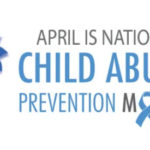By Madeleine Kates
Being a patient is stressful, especially when you are not feeling your best. October is National Health Literary Awareness month, and a great time to think about how to get the most out of your medical visits. Here are some tips.
Educate yourself and be prepared. Research your condition and bring any informational materials you find to your appointment. They are a great discussion starter, especially when dealing with complex or rare medical issues.
Be proactive. It can sometimes be difficult to get timely appointments. Ask about cancellation lists if you are able to respond quickly when a last-minute appointment becomes available. For larger practices with multiple sites, see if there may be an appointment sooner at one of their other locations. You should also be proactive when waiting for a callback. If you haven’t gotten a response to your message in a reasonable amount of time, call again. Physician offices are busy places, and messages can be misplaced or go unread.
Seek a second opinion. Physicians often encourage getting a second opinion, so don’t feel awkward pursuing one. Along the same lines, don’t be afraid to find a new physician if the relationship with your current provider doesn’t feel quite right.
Ask questions. Patients should never be made to feel silly for asking questions. Make sure you clearly understand any instructions you’ve been given, or any medications you’ve been prescribed. Ask about alternatives for treatments if something is not working well. And, be honest about computer proficiency, since many physician offices assume you’ll be able to access their online patient portal. If needed, request printed instructions or after-visit reports.
Read everything to make sure it’s correct. Sometimes patients share the same name or physical description, so it is important to double check that paperwork is for you, medications are accurately dispensed, and the right tests have been ordered. When in doubt, ask again!
Bring someone along. If you don’t feel well, your attention may be elsewhere, so bring a trusted representative to take notes, ask questions, or to help pick up prescriptions.
Don’t wait for an emergency to seek care. If something doesn’t feel right, don’t wait until mild issues become something serious. No one knows your body the way you do, so communicate with your physician early when problems arise.
Being a patient can be difficult and scary. With some preparation and determination, you will be a great patient advocate for yourself or for someone you love.
Madeleine Kates is a graduate student in the University of Pennsylvania’s MSNS program, with undergraduate degrees in Environmental Science, Life Science, and Psychology from Niagara University. She also holds certificates in Plant-Based Nutrition from Cornell University, and CHEF Coaching from Harvard University.












